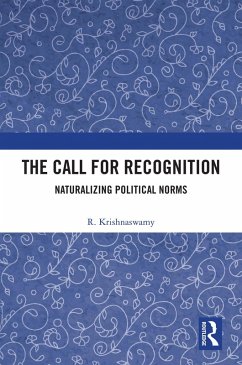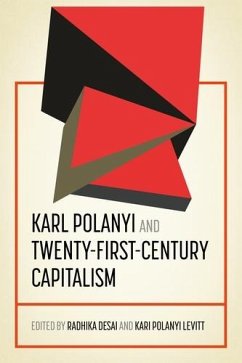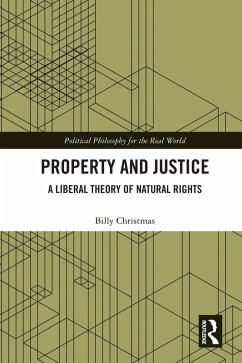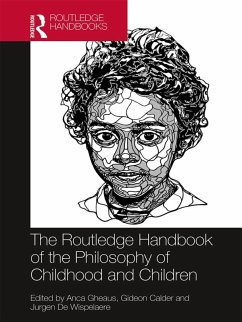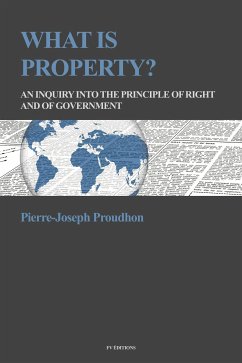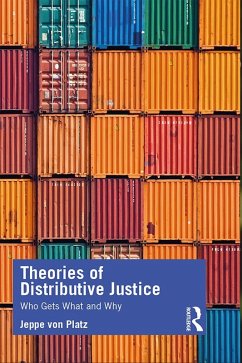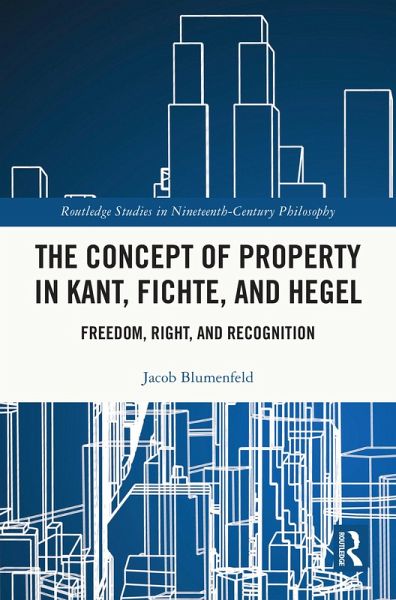
The Concept of Property in Kant, Fichte, and Hegel (eBook, ePUB)
Freedom, Right, and Recognition
Versandkostenfrei!
Sofort per Download lieferbar
38,95 €
inkl. MwSt.
Weitere Ausgaben:

PAYBACK Punkte
19 °P sammeln!
This book provides a detailed account of the role of property in German Idealism. It puts the concept of property in the center of the philosophical systems of Kant, Fichte, and Hegel and shows how property remains tied to their conceptions of freedom, right, and recognition.The book begins with a critical genealogy of the concept of property in modern legal philosophy, followed by a reconstruction of the theory of property in Kant's Doctrine of Right, Fichte's Foundations of Natural Right, and Hegel's Jena Realphilosophie. By turning to the tradition of German Rechtsphilosophie as opposed to ...
This book provides a detailed account of the role of property in German Idealism. It puts the concept of property in the center of the philosophical systems of Kant, Fichte, and Hegel and shows how property remains tied to their conceptions of freedom, right, and recognition.
The book begins with a critical genealogy of the concept of property in modern legal philosophy, followed by a reconstruction of the theory of property in Kant's Doctrine of Right, Fichte's Foundations of Natural Right, and Hegel's Jena Realphilosophie. By turning to the tradition of German Rechtsphilosophie as opposed to the more standard libertarian and utilitarian frameworks of property, it explores the metaphysical, normative, political, and material questions that make property intelligible as a social relation. The book formulates a normative theory of property rooted in practical reason, mutual recognition, and social freedom. This relational theory of property, inspired by German Idealism, brings a fresh angle to contemporary property theory. Additionally, it provides crucial philosophical background to 19th-century debates on private property, inequality, labor, socialism, capitalism, and the state.
The Concept of Property in Kant, Fichte, and Hegel will appeal to scholars and advanced students interested in 19th-century German philosophy, social and political philosophy, philosophy of law, political theory, and political economy.
The book begins with a critical genealogy of the concept of property in modern legal philosophy, followed by a reconstruction of the theory of property in Kant's Doctrine of Right, Fichte's Foundations of Natural Right, and Hegel's Jena Realphilosophie. By turning to the tradition of German Rechtsphilosophie as opposed to the more standard libertarian and utilitarian frameworks of property, it explores the metaphysical, normative, political, and material questions that make property intelligible as a social relation. The book formulates a normative theory of property rooted in practical reason, mutual recognition, and social freedom. This relational theory of property, inspired by German Idealism, brings a fresh angle to contemporary property theory. Additionally, it provides crucial philosophical background to 19th-century debates on private property, inequality, labor, socialism, capitalism, and the state.
The Concept of Property in Kant, Fichte, and Hegel will appeal to scholars and advanced students interested in 19th-century German philosophy, social and political philosophy, philosophy of law, political theory, and political economy.
Dieser Download kann aus rechtlichen Gründen nur mit Rechnungsadresse in A, B, BG, CY, CZ, D, DK, EW, E, FIN, F, GR, HR, H, IRL, I, LT, L, LR, M, NL, PL, P, R, S, SLO, SK ausgeliefert werden.







